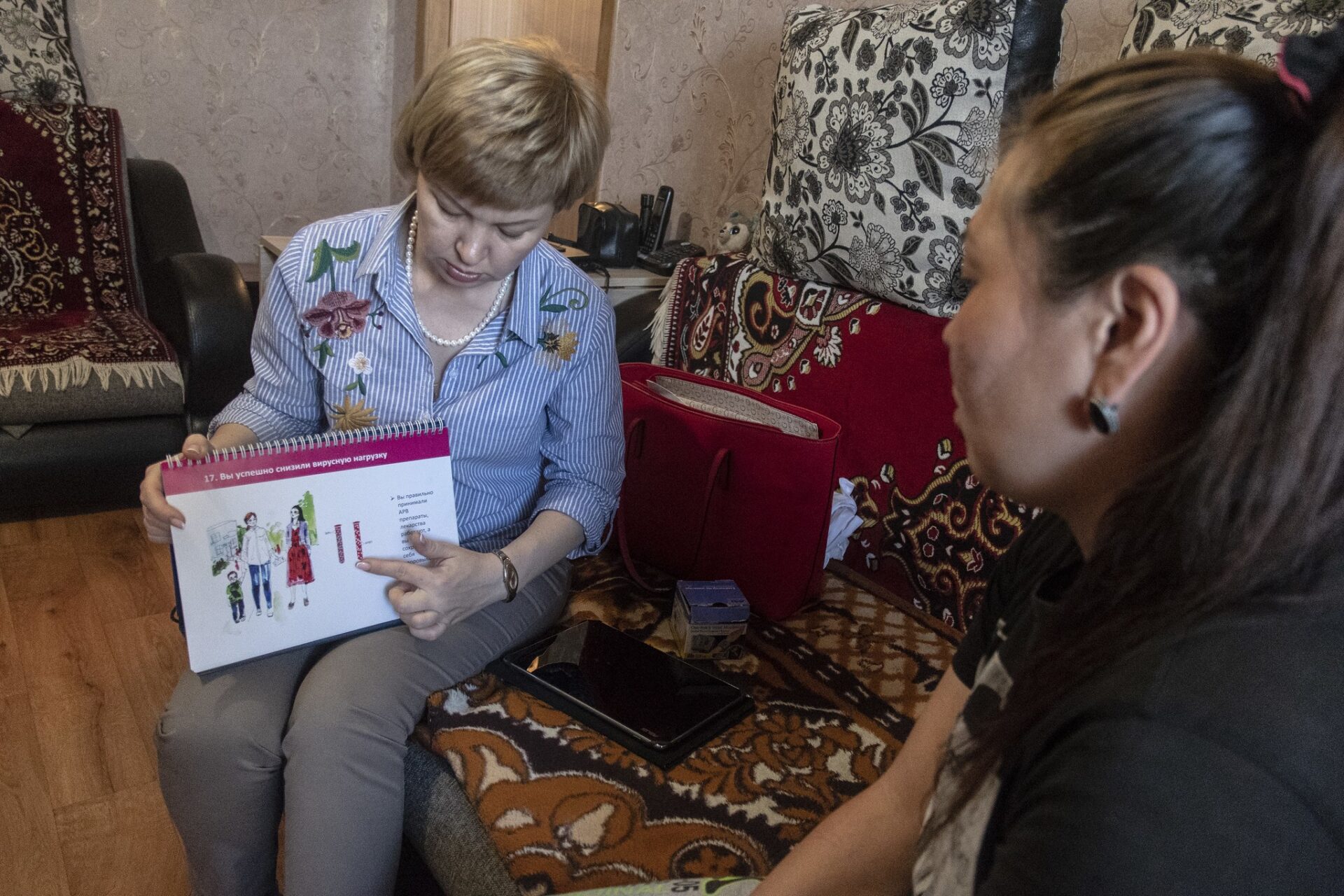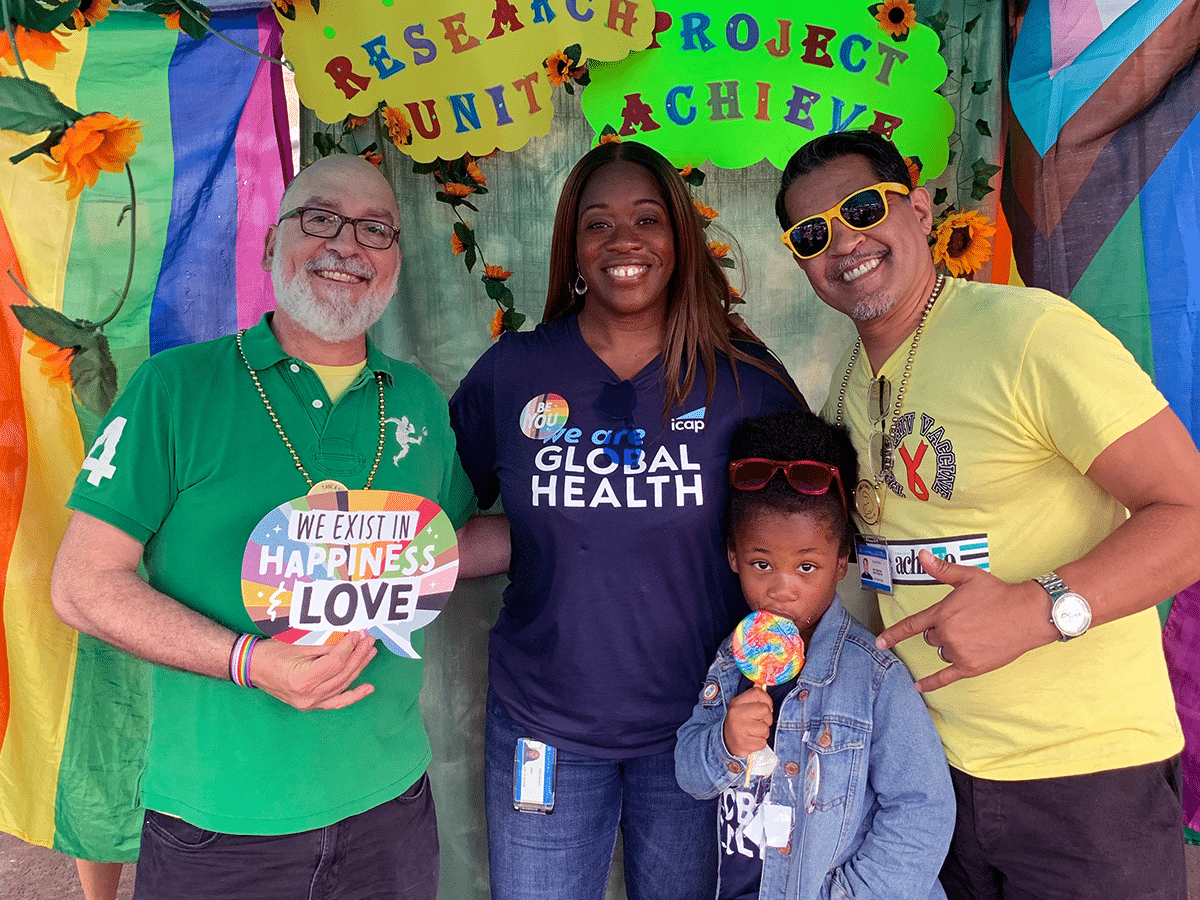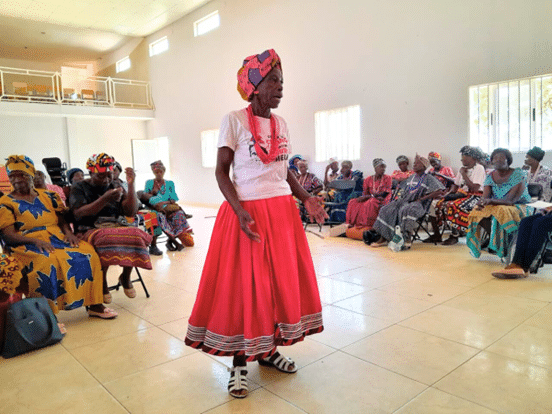In Central Asia, ICAP has been on the front lines of providing technical assistance to improve the quality of HIV testing and treatment services and augment data management systems to inform national HIV programs. Since 2011, ICAP programming in the region has worked to overcome barriers of access and stigma to ensure that communities vulnerable to serious health conditions such as HIV can access critical health services.
People who inject drugs suffer disproportionately from a range of serious health conditions, including HIV and AIDS, tuberculosis (TB), and viral hepatitis. Despite these risks, many people avoid treatment because of longstanding stigma about drug use. “People who inject drugs have had a lot of bad experiences,” said one health care worker in Bishkek, Kyrgyzstan. “They don’t trust anyone, including health care providers.” This distrust has had a significant impact on the health of people who use drugs. As a result, Central Asia is one of the few regions of the world currently experiencing an increase in new HIV infections and AIDS-related deaths, with the epidemic concentrated among people who inject drugs as well as their injecting and sex partners.
In Kazakhstan, Kyrgyz Republic, and Tajikistan, ICAP has been testing innovative service delivery strategies to connect people who use drugs to integrated HIV, tuberculosis, and medication-assisted therapy (MAT) services. By training nurses and other community-based health workers to support retention and adherence of people living with HIV to antiretroviral therapy (ART), ICAP’s programming also reduces the client load for doctors at local AIDS Centers who historically were required to provide all treatment-related services to people living with HIV.
With a recent award from the U.S. President’s Emergency Plan for AIDS Relief (PEPFAR), through the U.S. Centers for Disease Control and Prevention (CDC), ICAP is expanding its critical work in the Kyrgyz Republic and Tajikistan to link at-risk populations with health services that can prevent the spread of HIV across the region. In close partnership with ministries of health, programming will seek to strengthen HIV testing, treatment, and support services for people living with HIV and their partners, as well as key population groups, with a special focus on people who inject drugs and their sex partners.
“Late initiation of antiretroviral treatment and poor adherence to treatment regimens among people living with HIV continue to be important barriers to effective HIV epidemic control in Central Asia among those with substance use disorders. ICAP’s breakthrough research and programs in these areas are making a significant difference in the lives of people who live with HIV,” explained Anna Deryabina, MD, DrPH, MScIH, ICAP’s regional director in Central Asia. “We are proud of the work we have done so far and are excited by this additional funding from the CDC to leverage our learnings to have an even greater regional impact.”
The funding will build on previous work implemented by ICAP and will introduce new service delivery models for people living with HIV, improve HIV case finding, build linkages to effective HIV prevention and care among populations at high risk for contracting HIV, and offer health service delivery innovations to increase adherence to ART. Additionally, ICAP will support the countries’ ministries of health to enhance institutional and service provider capacity to effectively prevent HIV infection and strengthen outreach health programming to communities most at risk for adverse health outcomes related to HIV. The new health systems strengthening project is expected to last five years.
“Our work in the region has shown that developing community outreach programs for hard-to-reach clients improves access to care and treatment services,” said Andrea Howard, director of the clinical and training unit at ICAP. “For people who are living with HIV and who inject drugs, these programs are incredibly important to reduce the barriers and stigma they face when seeking care at a health facility. By reaching out to people in their own homes and communities, we can ensure that patients and their injecting and sexual partners have access to lifesaving health services. We are looking forward to continuing our collaboration with the ministries of health to strengthen national-level services for communities at risk for HIV infection.”
A global health leader since 2003, ICAP was founded at Columbia University with one overarching goal: to improve the health of families and communities. Together with its partners—ministries of health, large multilaterals, health care providers, and patients—ICAP strives for a world where health is available to all. To date, ICAP has addressed major public health challenges and the needs of local health systems through 6,000 sites across more than 30 countries. For more information about ICAP, visit: icap.columbia.edu.








